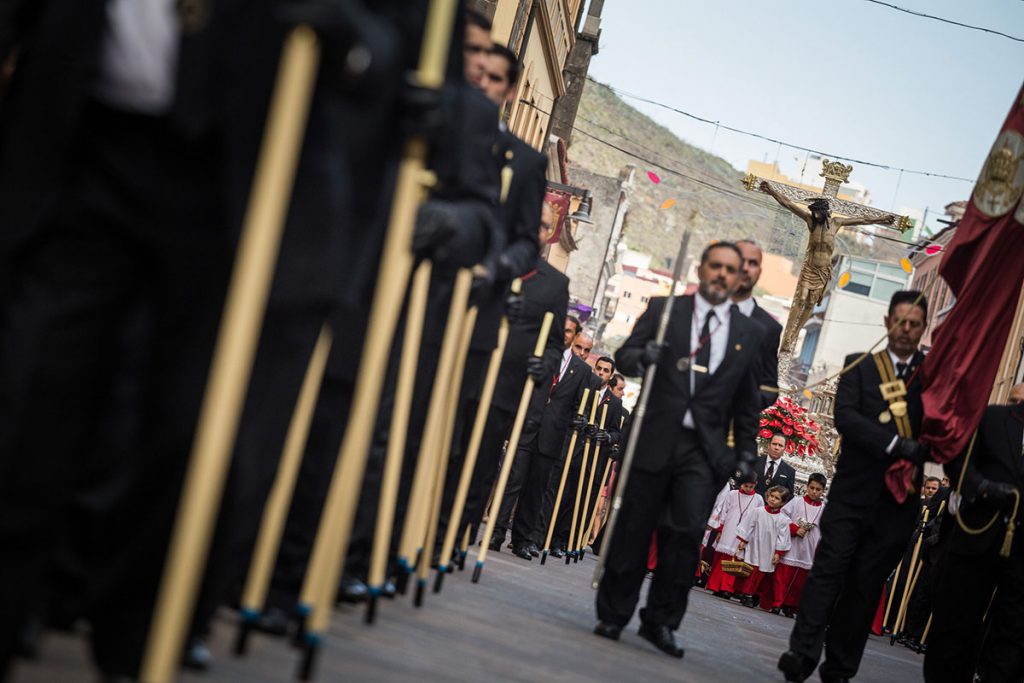
The Civil Chamber I of the Supreme Court has upheld the appeal filed by the Pontifical, Royal and Venerable Slavery Association of the Holy Christ of La Laguna (Tenerife) against the sentence of the Hearing of Santa Cruz de Tenerife that gave the reason to a woman who claimed the invalidity of the article of the statutes because it only accepts men as partners.
The Court, and previously the Court of First Instance number 2 of Santa Cruz de Tenerife, considered that the article violated the rights of equality, non-discrimination based on sex and association.
The Supreme Court now examines the conflict that occurs in this case between the self-organizing autonomy implicit in the right of association and religious freedom of the defendant association, and the right to associate of the plaintiff in relation to the principle of non-discrimination on grounds of sex .
The Chamber recalls, in a ruling made public this Wednesday, that the Slavery of the Most Holy Christ, formed only by men since 1659, is an association constituted in accordance with canon law with an exclusively religious purpose, and highlights that the essential content or core of the law Association includes both the right to associate and to establish one’s own organization, which in turn extends to statutory regulation of the causes and the procedure for the admission and expulsion of members.
Likewise, the magistrates indicate that, according to constitutional doctrine, although article 53.1 of the Constitution only expressly establishes that fundamental rights (including the principle of equality) bind the public powers, this does not imply an exclusion absolute of other possible recipients, but it is an application “with a different degree of intensity”, since “in the field of private relationships […] Fundamental rights and, among them, the principle of equality, must be applied in a nuanced way, since they must be made compatible with other values or parameters that have their ultimate origin in the principle of the autonomy of the will, and that are manifested through the rights and duties that arise from the contractual relationship created by the parties or from the corresponding legal situation “, according to the ruling of the Constitutional Court 177/1988, which the Supreme Court cites.
Thus, it adds that it should be taken into account whether it is private associations that hold a privileged position or dominance in the economic, social or professional field, in which the decision of the association not to admit the incorporation of a partner can generate in the affected a significant and unjustified damage.
In this area, the ruling indicates that the defendant association cannot be classified as a dominant association because “its activities and purposes are strictly and exclusively religious” such as promoting among its associates a more perfect Christian life, the exercise of works of evangelical piety and the increase in devotion and worship to the Sacred Image of Our Crucified Lord, therefore alien to any economic, professional or work connotation.
Along these lines, the Supreme Court continues, its public and festive demonstrations, translated into processional acts, also have an unequivocal religious character, and are protected by the fundamental right to freedom of religion and worship (Article 16 of the Constitution), which includes the right of everyone to practice acts of worship, commemorate their religious festivals, and gather or demonstrate publicly for religious purposes.
In addition, the magistrates add, in view of the facts recorded in the proceedings, “neither is there a monopoly or exclusivity situation in the organization of the processional activities of Holy Week and other acts of worship by the Slavery of the Holy Christ , which is one of the various existing Brotherhoods and Brotherhoods based in La Laguna, as there is no canonical impediment to promote the constitution of new brotherhoods, with the same spiritual and religious purposes, made up of men and women or only women ” , as affirmed by the Diocesan Bishop and as a result of the Decree of the Archbishopric of Seville invoked by the applicant.
AUTONOMY OF THE ORGANIZATION
Likewise, the judgment recalls that the European Convention on Human Rights and Fundamental Freedoms, of 1950, also recognizes the right of everyone to religious freedom and free manifestation (Article 9.1), which “cannot be subject to more restrictions than those that, provided for by law, constitute necessary measures, in a democratic society, for public safety, the protection of public order, health or morals, or the protection of the rights or freedoms of others ”.
The Supreme Court also includes in its resolution the judgment of the European Court of Human Rights (ECHR), of May 15, 2012 –Fernández Martínez case against Spain–, which indicates that said article 9 “must be interpreted in the light of article 11 of the Convention that protects the associative life against any unjustified interference of the State ”.
Indeed, their autonomy, essential for pluralism in a democratic society, is at the very core of the protection offered by Article 9.
The Court also recalls that, except in very exceptional cases, the right to freedom of religion as understood by the Convention excludes any assessment by the State regarding the legitimacy of religious beliefs or the modalities of their expression.
And on this basis it establishes that “the principle of religious autonomy prohibits the State from compelling a religious community to admit or exclude an individual or to entrust him with any religious responsibility.”













